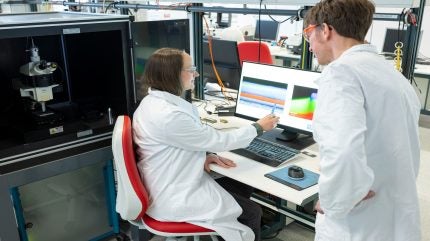
BASF has partnered with Endress+Hauser, TechnoCompound, and two German universities to advance the mechanical recycling of plastics.
The collaboration, supported by the German Federal Ministry of Education and Research (BMBF), focuses on employing advanced technology and AI to improve the sorting and processing of plastic waste.

Discover B2B Marketing That Performs
Combine business intelligence and editorial excellence to reach engaged professionals across 36 leading media platforms.
BASF noted that the research involves using spectroscopic methods to analyse how materials interact with light, providing insights into the chemical structure of the plastics being recycled.
The goal is for project partners to use this data to determine the grades, additives, and contaminants present in the material in real time during the recycling process.
Following the spectroscopic analysis, an AI algorithm will be employed to detect patterns in the data.
The SpecReK project, with a total volume of €2.2m ($2.28m), is two-thirds funded by BMBF under its quantum systems research programme while the remaining one-third is financed by the project partners themselves.

US Tariffs are shifting - will you react or anticipate?
Don’t let policy changes catch you off guard. Stay proactive with real-time data and expert analysis.
By GlobalDataThe collaboration also includes the University of Bayreuth and Friedrich Schiller University Jena.
In instances where mechanical recycling is not viable or overly complex, BASF acknowledges that these plastics can reenter the material loop through chemical recycling.
BASF Plastics Circularity research programme head Bernhard von Vacano said: “We do not currently have the necessary analysis tools to determine during processing exactly which components are contained in the mechanically recycled plastics.
“This [project] will enable us to use more mechanically recycled plastics to produce high-quality products and to make recycling processes more efficient and sustainable.
“With the increasing demand for high-quality recycled materials, and given the current legal framework, it will be crucial to perfectly understand the material properties and composition of mechanically recycled plastic waste and to optimise the process. In this way, we will strengthen the circular economy.”



